To be successful, human rights work requires a mix of vision and tenacity – the ability to see a problem clearly and then develop creative solutions. The Harvard Law School International Human Rights Clinic recently spoke with three alumni from the classes of 2018, 2016, and 2014, who are charting their own paths and creating change through innovative thinking, from Cambodia and Geneva to Texas and South Africa.
Ha Ryong Jung (J.D. ’18) – Associate Human Rights Officer, United Nations Office of the High Commissioner for Human Rights, Switzerland
A long-time children’s rights advocate, Jung took part in a diverse array of clinical and pro bono work during his time at HLS, which he describes as being pivotal to his growth as a lawyer who can take an interdisciplinary, contextualized, and strategic approach to his work in human rights.
Following graduation, he launched his legal career through a Public Service Venture Fund Fellowship as a Legal Officer at the Legal Aid of Cambodia. Based in Phnom Penh, he also served as the Technical Advisor to the Child Rights Coalition Cambodia and established the Child Justice Network (CJN), a partnership between civil society organizations and U.N. agencies. CJN enhances the child justice system by developing child-friendly procedures and ensuring access to justice for and with children.
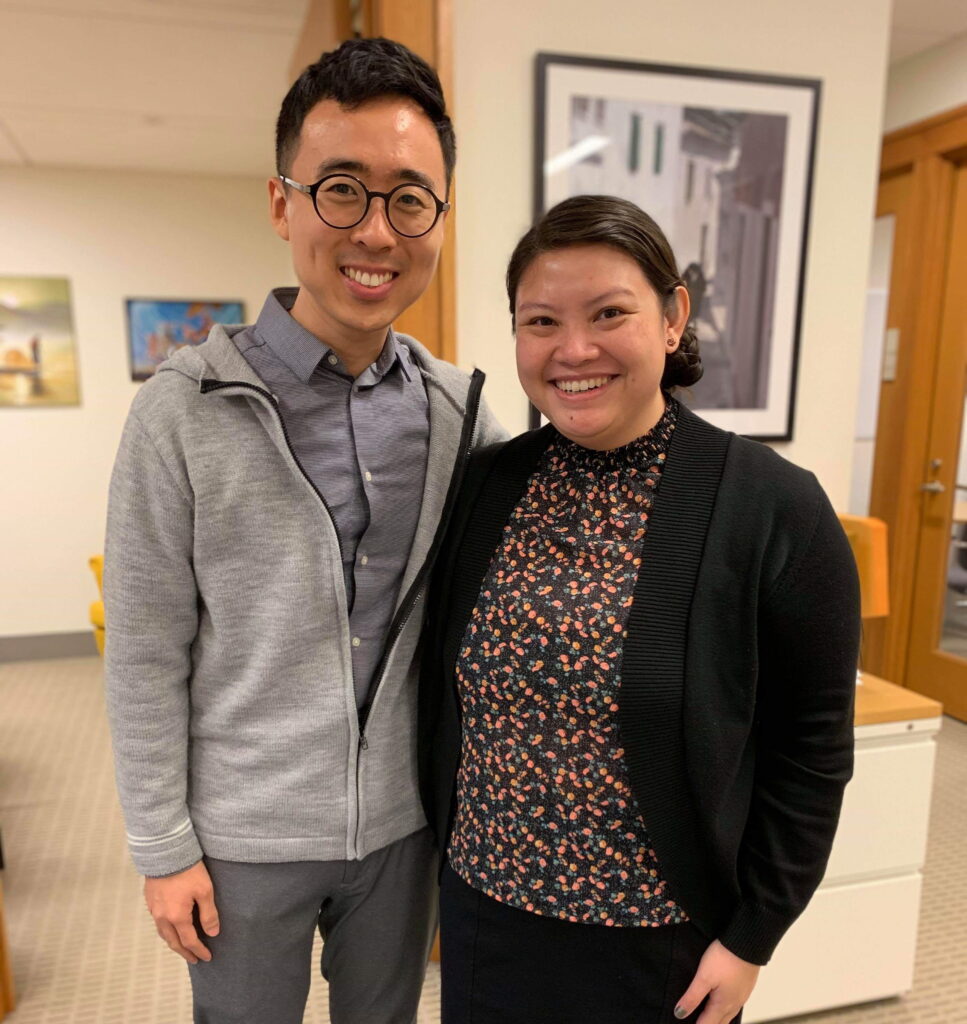
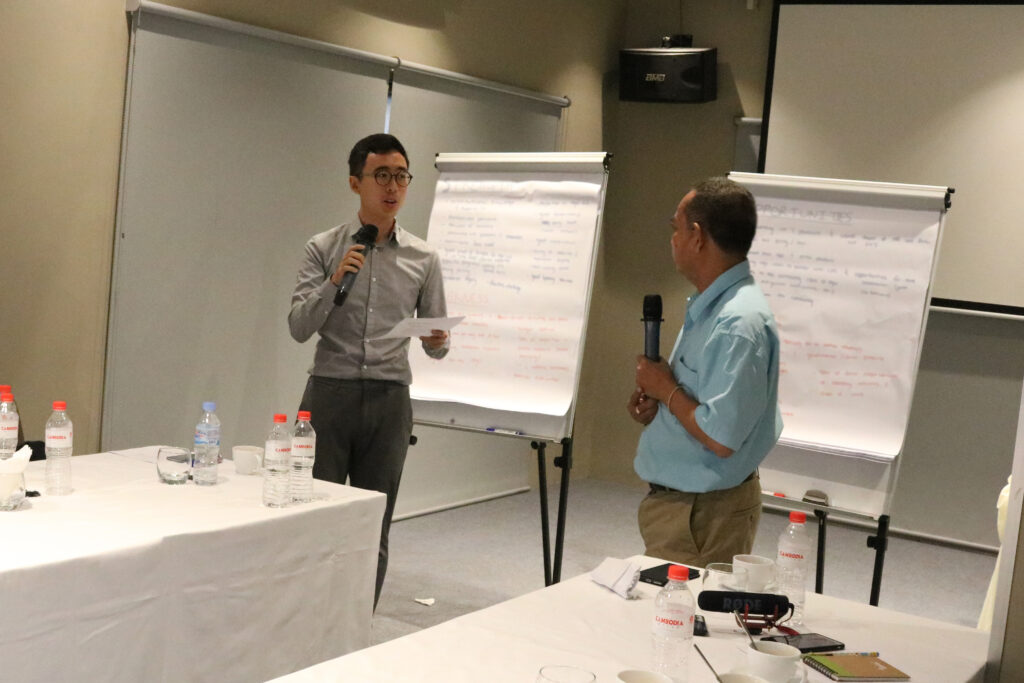
Jung recalled, for example, how in some child welfare or detention facilities the boxes for children to file complaints or make suggestions were in high and out-of-reach places, which made them difficult to access and use.
“The people who were building the facilities and placing those boxes weren’t really thinking about that basic issue until the children pointed out that actually it’s inaccessible to them,” Jung said.
Moving a box might seem like a small adjustment, but that kind of practical and incremental change helps everyone – particularly persons with disabilities – to better share their voices and experiences. And amplifying other people’s voices based on genuine and meaningful participation, whether they’re speaking about rearranging the furniture in a courtroom or reforming how children’s rights are understood in law and policy, is central to Jung’s philosophy. He is always looking for gaps that can be filled so children can more effectively exercise their rights at the local, national, regional, and international levels.
“Children are the experts of their own lived experiences and the way that they see the world, but so often their voices are not sought or they’re silenced, even when designing systems that are meant specifically for children, so it’s no surprise that many of these systems fail,” Jung said.
In particular, he co-authored a book chapter and a global policy paper stressing the need to promote the participation of children in processes that impact change in the justice and complementary systems at a systemic and structural level. He emphasizes that this is necessary to design and implement systems and frameworks that can have a concrete, positive, and sustainable impact for children and society as a whole. To this end, he also developed guidelines to promote the use of child-friendly justice terminology and to support empowerment via various angles, including in a disability inclusive manner.
After nearly five years in Cambodia, Jung has transferred his child rights expertise nearly 6,000 miles away, to U.N.’s main human rights office in Geneva, Switzerland. On top of his role as a desk officer for multiple countries around Asia and the Pacific, Jung also serves as the child rights focal point for the region and supports the Human Rights 75 Initiative, a yearlong effort to celebrate and recommit to the Universal Declaration of Human Rights. Building on his prior experiences working in and with U.N. agencies and human rights mechanisms, he is now appreciating the insights gained at the headquarters level and plans to equip himself with more tools that he can then take back to the field to further support civil society organizations.
Jung used to imagine his career linearly, with each move carefully leading to the next. But since law school, he’s come to embrace uncertainty and instability and has been moving forward in a fluid and adaptive manner.
“It’s actually been much more interesting to just kind of go with the flow and to see where my work leads me,” he said.
Jung still wants to learn new skills, work with new partners, and build new bridges. He is excited to explore unconventional and creative pathways to effect positive change, no matter how small or (in)visible they may be.
Brian Klosterboer (J.D. ’16) – Staff Attorney, ACLU of Texas
Klosterboer arrived at HLS with his heart in Uganda. As a Fulbright Fellow, he spent a year between college and law school in Kampala interning at one of Uganda’s largest newspapers, which the police raided to censor its reporting. While there, he learned much more than how to report the news. Klosterboer embraced the community he built and came to better understand his privilege as a U.S. citizen and a white person from the Global North.
“I moved to Uganda not knowing anyone and it’s such a welcoming place [that] by the time I left, I had a robust network of friends and colleagues,” Klosterboer said. “I realized how stacked the economic and political systems are against my Ugandan friends, but learning from them and being in community with them was really powerful.”
When starting law school, Klosterboer found that many of his first-year classes discussed the law in abstraction, stripping away how legal systems and court decisions impact people. “Most professors were asking sort of superficial questions of: What is the case holding? What is this case about? What are the rules? It was trying to teach the law like science, even though we know that law is a social construct and created by society,” he said.
The Human Rights Clinic was a breath of fresh air and a refuge during Klosterboer’s second and third years. He knew about the Human Rights Clinic’s long track record of holding corporations accountable even before enrolling, and mentioned Clinic Director Susan Farbstein in his application essay. Klosterboer worked closely with Farbstein to litigate Alien Tort Statute and Torture Victim Protection Act cases in the federal appeallate courts, and even helped draft a petition for certiorari to the Supreme Court.
In his third year Klosterboer and the Clinic’s Associate Director, Anna Crowe, led a spring break trip to Uganda and partnered with Human Rights Awareness and Promotion Forum to lay the groundwork for a lawsuit the organization was preparing to file.
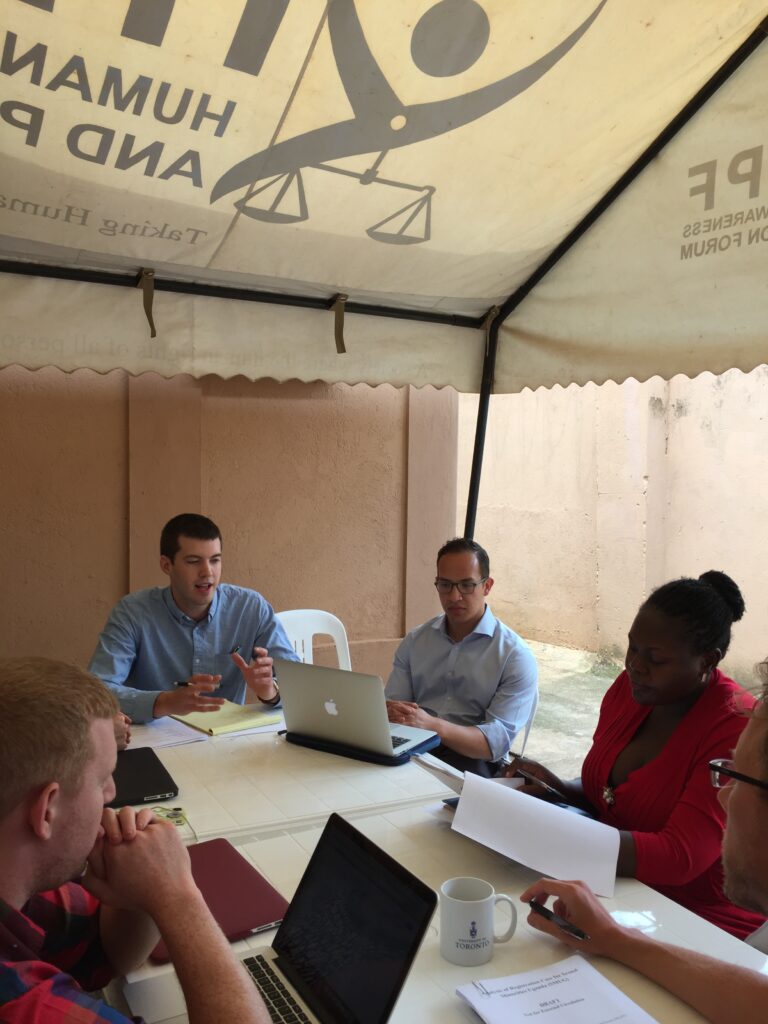
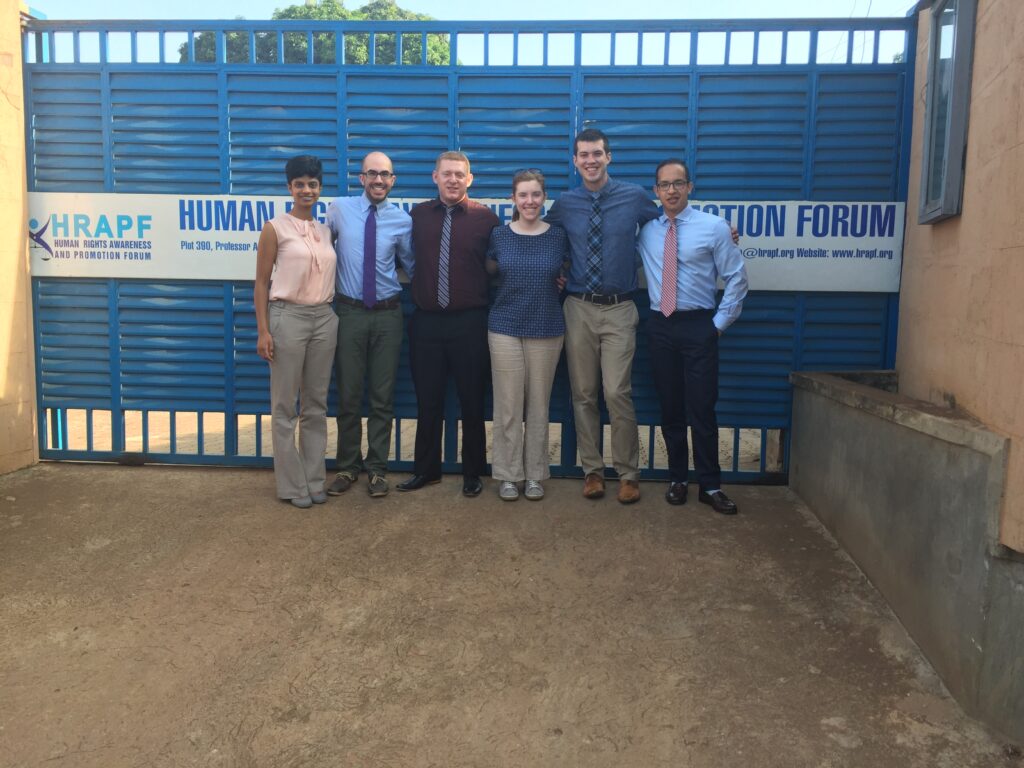
The clinical hours Klosterboer spent researching case law, honing arguments, and crafting briefs have paid off. After graduation he clerked for two years for a federal judge in Houston and then joined the ACLU of Texas as a Skadden Fellow.
As a Fellow, Klosterboer focused on the intersection of LGBT rights and homelessness. “We’ve seen a really vicious upswing of anti-LGBT and anti-trans sentiment and hatred in Texas,” he said. When Klosterboer first joined the ACLU of Texas in 2018, they had just four attorneys to cover the entire state. That number has now tripled as the volume of work has expanded.
When another attorney took a leave in February 2020, Klosterboer stepped in to temporarily cover criminal justice issues right as the pandemic hit. “We filed three lawsuits trying to reduce the jail time and prison population across Texas as the pandemic was spreading,” he said. “We pushed local governments and the state government to keep people safe from Covid.”
Klosterboer was promoted to Staff Attorney in fall 2020. His work now combines strategic litigation and advocacy. One day he might write a brief, then pivot the next day to preparing testimony before the state legislature. That blend of tactics and a holistic approach is crucial given that the state and federal courts in Texas are less receptive to rights claims.
“The Clinic taught me to embrace different tools, whether it’s engaging with the media and using a communications strategy, putting quiet pressure on decisionmakers, pushing for corporate reform, or using litigation,” he said.
Klosterboer relishes building the perfect test case for an issue. But he’s also embraced being flexible and creative as he pushes for legal change to protect the rights of marginalized groups in Texas.
Lindsay Henson (J.D. ’14) – Executive Director, Lawyers against Abuse, South Africa
Henson never thought she’d become a lawyer. After studying applied math in college, she went on to work as an analyst at a litigation consulting firm. It wasn’t until she learned about the issue of human trafficking through her church that she felt compelled to learn more. “I really felt this kind of higher calling to get involved in the issue in some way, shape, or form,” Henson said.
Her research eventually led Henson to apply for a fellowship with International Justice Mission (IJM), a global nonprofit that takes a holistic approach to protecting vulnerable people from human trafficking and other forms of violence. During her fellowship in the Philippines, Henson learned firsthand how IJM “works to strengthen the capacity of the domestic justice system to successfully investigate and prosecute trafficking cases and provide holistic support to survivors.”
IJM’s holistic model supports survivors by connecting them to specialized lawyers, social workers, and other resources. She now applies that same multi-dimensional approach as Executive Director of Lawyers against Abuse (LvA), an organization that works to ensure that survivors of gender-based violence in South Africa have meaningful access to justice.
Even before attending HLS, Henson understood the law could be used as a tool for social justice. With a clear vision for the kind of work she wanted to do after law school, Henson took advantage of opportunities to cross-register at the Kennedy School and the Graduate School of Education to explore development, social entrepreneurship and non-profit financing. In the Human Rights Clinic, Henson worked with Farbstein and the Equal Education Law Centre (EELC) to develop potential legal and advocacy strategies to respond to a range of issues that EELC had identified in South African schools and corresponding violation of students’ right to basic education.
The clinical team analyzed comparative frameworks from India and the United States, researched South Africa’s existing regulatory framework, and considered pathways for better implementation of existing laws, as well as potential reforms and new legislative options.
“We were doing a lot of the groundwork and research to shape projects for future Clinic teams. In doing so, understanding the root causes of these problems was essential,” Henson said.
Henson first learned about LvA through Professor Diane Rosenfeld, who connected her with one of LvA’s founding board members and HLS alumna, Jennifer MacLeod (LLM ’10). She joined the organization and moved to Johannesburg with funding from the Public Service Venture Fund Fellowship and the Henigson Human Rights Fellowship.
As a Legal Fellow, Henson assisted survivors to obtain protection orders against their abusers and provided comprehensive support in criminal cases including liaising with police officials and prosecutors. At the end of her fellowship year, Henson stayed on at LvA full time, and transitioned to the role of Executive Director. “When I joined the organization, it was very much still in startup mode. I was the third staff member,” Henson said.
From that initial staff of three, Henson has grown LvA’s team significantly to include lawyers, therapists, social workers, and field workers now spread across three walk-in Centers throughout Johannesburg. Together with her team, Henson continues to support survivors of gender-based violence and provide the type of holistic care that she admired at IJM over a decade ago.
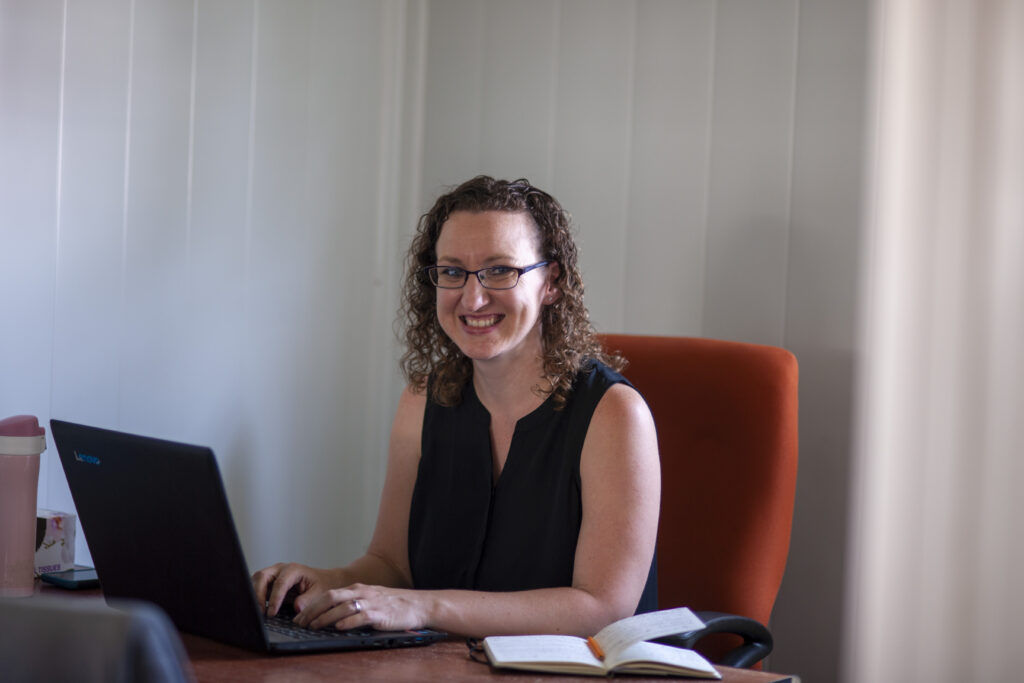
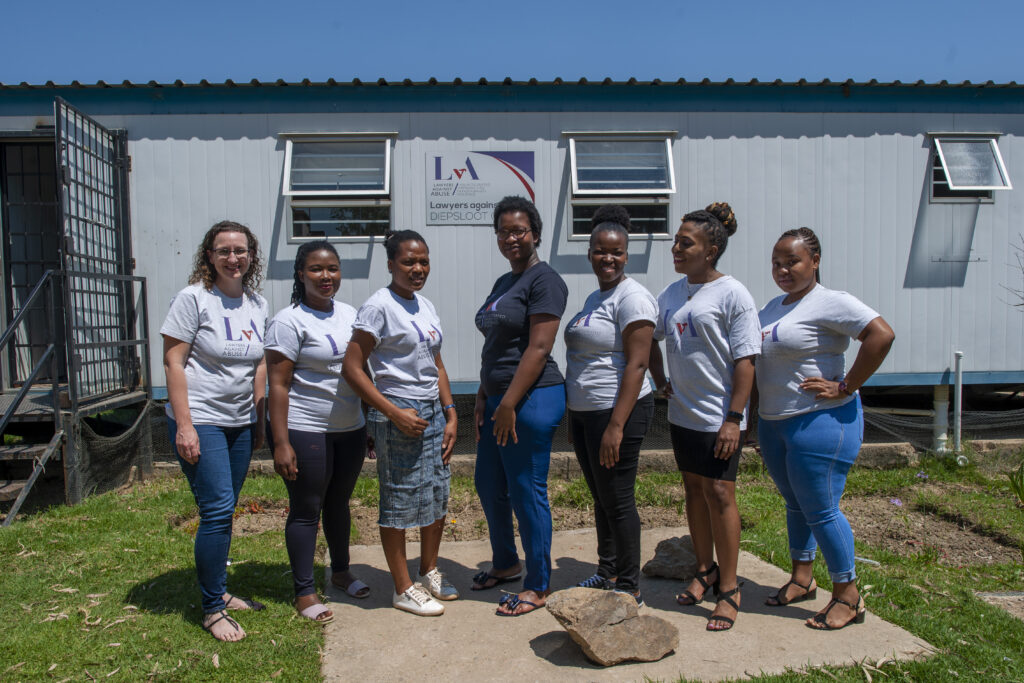
Henson noted that running a non-profit is like running a business in many ways. As such, her role as Executive Director requires that she wear many hats – from fundraising, marketing, human resources, and financial management to leading her team as they execute LvA’s strategic vision.
“I am privileged to be doing exactly what I went to law school to do,” Henson said, “to use the law to protect vulnerable womxn and children from violence and to push the local justice system to work the way it is meant to.”
Henson still loves to solve problems. Her mathematics background taught her to see patterns and think critically. Her legal training helped her understand how the law could be used for institutional reform and systemic change. Now she’s using all the tools in her kit to lead from the top.
Paras Shah (@pshah518) is a Postgraduate Fellow at Just Security and a Research Scholar at NYU School of Law. He is a graduate of the University of California, Berkeley and Harvard Law School where he spent two years in the International Human Rights Clinic and served as an Executive Article Editor for the Harvard Human Rights Journal.